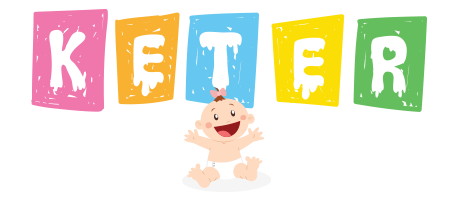
Symptoms of poisoning in children
Most poisons, with the exception of heavy metals (e.g. lead), act relatively quickly. You may be told that if your unhealthy baby shows abnormal symptoms, you could be poisoned. Signs may vary, but may include ...
- Unexplained nausea, vomiting or diarrhea.
- Chest or abdominal pain.
- Headache.
- Blurred vision; your child can't follow you with his eyes.
- Dizziness.
- Confusion.
- Numbness, tingling or chills.
- A burn or rash on lips, mouth or skin.
- Bluish lips.
- Unusual drooling.
- Unusual breath odor.
- Coughing or difficulty breathing.
- Sudden change in behavior (i.e. unexplained sleepiness, irritability or jumpiness).
- Weakness, stupor or loss of bladder control.
- Muscle twitching, seizures, convulsions or unconsciousness (only in extreme cases).
You may be suspected of possible poisoning if you find an open or overturned pill bottle or if you see suspicious stains on your baby's mouth or clothes.
1. Ingestion of poison
Do not try to make your child vomit unless instructed to do so by an expert. Some poisons can burn the inner lining of the stomach, throat and mouth and cause more damage if you try to induce vomiting. Take the container and take it to the phone. Call the poison information line.
2. Poison on the skin
Remove contaminated clothing and be careful to prevent further contact with the chemical. Moisturize the skin with warm running water. Wash gently with soap and water and rinse thoroughly. Call the poison information line.
3. Poison in the eye
Keep the eyelid open; flood your eye with water from a slow running glass, jug or tap. Continue for 10-15 minutes. Call the poison information line.
4. Inhaled poison
Get the person outdoors quickly without putting yourself in danger. Open doors and windows if it is safe to do so. Call the poison information hotline.
5. Bites and bites
Remove the padding, if present; wash the affected area with soap and warm water. Call the poison information hotline.
IMPORTANT: If your child falls or has difficulty breathing, he immediately calls the emergency number.
How to prevent childhood poisoning
Protecting your home from poisoning is the key to preventing childhood poisoning.
1. Medications
Poisoning from a random dose of iron supplements is the leading cause of childhood poisoning deaths in children under 6 years of age in the United States.
Always consult your doctor or pharmacist before giving any medicine to your child.
Try to buy products with child-resistant packaging. Keep in mind, however, that child-resistant packaging is not child-resistant packaging. Some children are very curious and can figure it out in time.
Always store medicines in their original packaging.
Store medicines, poisons and household cleaners in a locker or locker. Never store medicines on the counter or at the bedside table.
Clean the medicine cabinet regularly and dispose of unnecessary and obsolete medicines safely.
Only store medicines in the refrigerator if your pharmacist tells you to. Store medications refrigerated in a lockable container, such as a computer keychain.
Be aware of the medications visitors may bring to your home. Make sure that visitors do not leave medicines that are easily accessible to children, eg. in a handbag or purse without supervision.
Don't call drugs "candy".
Avoid taking medications in front of your child. Children often copy their parents.
Always turn on the light before giving the medicine to your child. Read the instructions carefully.
DO NOT give your child any prescribed medications.
Alcoholic beverages can be very dangerous for children if ingested. Make sure alcoholic beverages are well stored out of the reach of children.
Evaporator fluids, chest pain and essential oils can cause nausea if ingested, keep them out of the reach of children. Store in a locked cabinet.
2. Household products
Your home is the source of a huge range of chemicals that are safe when used for their intended purpose but are toxic when ingested. The kitchen and the bathroom are the most dangerous areas.
Make sure crayons, pencils and play materials are non-toxic.
Always store products in their original packaging. Do not pour leftover products into soft drink cups or bottles.
Store detergents and household products in a locked cabinet.
Keep the dishwasher door closed. Only fill the detergent dispenser when you are ready to use it. Remove the detergent residue before your baby can access it.
Do not use blocks on the edge of the toilet.
Do not leave the brushes soaked in mineral turpentine.
Make-up and perfume can be harmful if swallowed. Keep out of reach.
Keep ashtrays and cigarette boxes out of the reach and sight of children. Do not leave cigarette butts on the floor. (Ingesting 2 cigarette butts can be toxic to a small child.) Sticks can also cause illness if swallowed.
3. Plants and garden
There are often plants or chemicals in your garden, garage or yard that can be toxic to children.
Know your plants; identify poisonous plants. Some houseplants can also cause poisoning.
Never mix household chemicals. Toxic gas may be formed.
Avoid bringing industrial chemicals into your home.
Store pool chemicals in a locked cabinet.
Read the labels carefully.
Do not burn fuel or coal and do not use gasoline engines indoors.
Turn on the fan and open the windows with the chemicals.
Avoid using mouse bait pellets or snail pellets.
Keep the cockroach bait out of reach.
Liquid or powdered ant killers made with honey or other sweeteners can be harmful if ingested.
